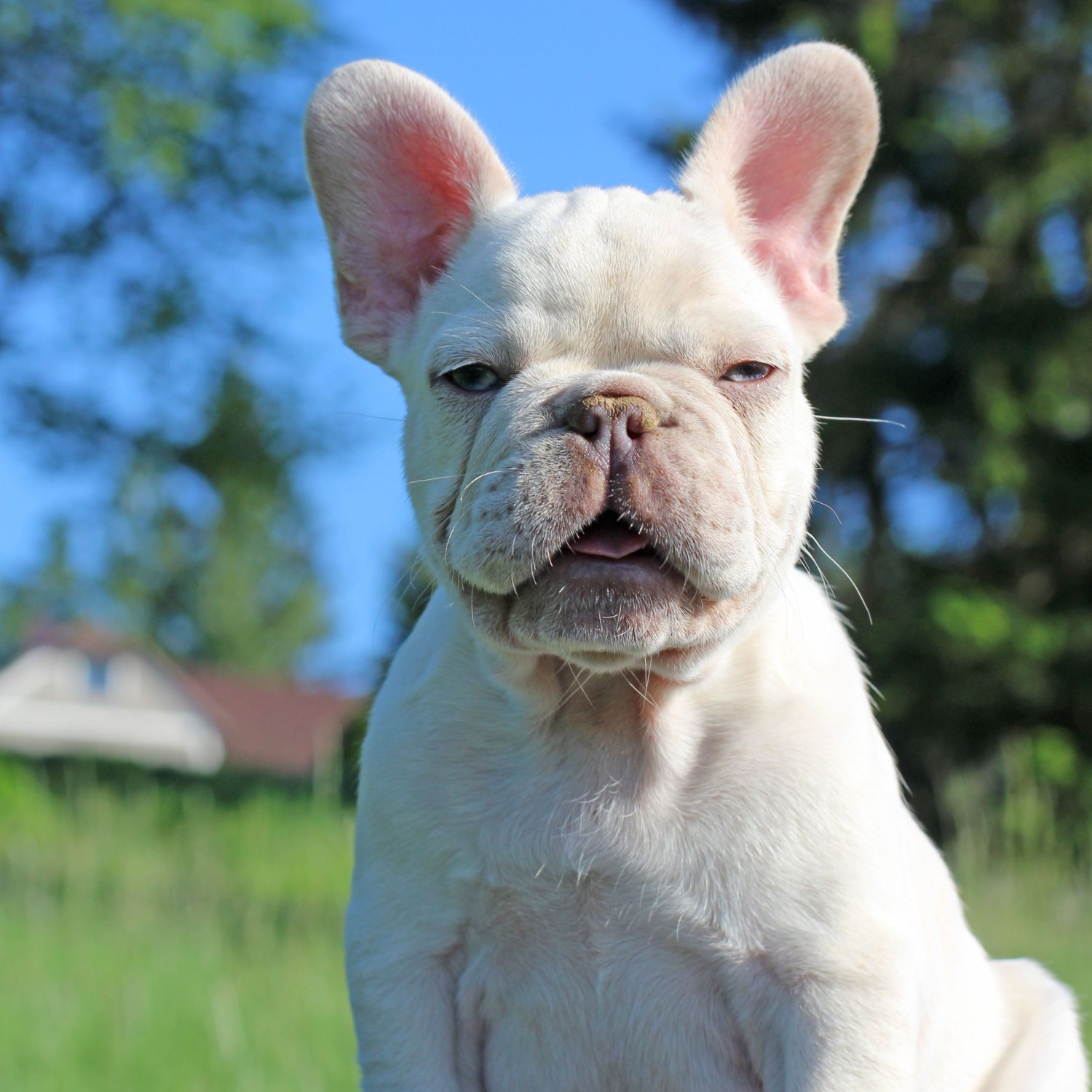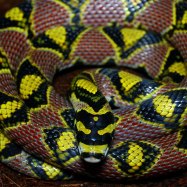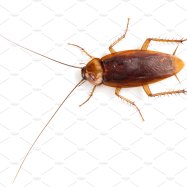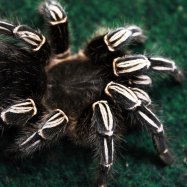
French Bulldog
11-12 inches (28-30 cm)
Looking for a furry companion? Consider a French Bulldog! These cute canines are known for their small and muscular build, making them perfect for urban areas. With a length of 11-12 inches, they are easy to handle and make great pets for families. So why not bring home a French Bulldog today? It's sure to bring joy and love to your household.
Animal Details Summary:
Common Name: French Bulldog
Kingdom: Animalia
Habitat: Urban
The Playful and Loyal French Bulldog: A Perfect Companion
When it comes to canine companions, there are few breeds as charming and beloved as the French Bulldog. With their adorable wrinkly faces and playful personalities, these dogs have captured the hearts of many dog lovers around the world. But there's more to this breed than just their looks and charm. In this article, we'll dive into the world of French Bulldogs and explore what makes them such a unique and adored breed French Bulldog.Scientifically known as Canis lupus familiaris, the French Bulldog is a domesticated dog breed that falls under the kingdom Animalia, phylum Chordata, and class Mammalia. They are a part of the Carnivora order and the Canidae family, which includes other well-known breeds such as the German Shepherd, Golden Retriever, and the English Bulldog.
Originally from France, the French Bulldog has gained immense popularity around the world, making it a common household pet in many countries. With their compact size and low maintenance needs, they are well-suited for urban living, and it's no surprise that they have become a popular choice for city dwellers as well.
A Bit of History
The history of the French Bulldog dates back to the 1800s when they were bred in England as a smaller version of the English Bulldog. The industrial revolution had brought many lace makers to France, and they took their beloved dogs with them, including the English Bulldog. Over time, the breed gained popularity among the French and was eventually renamed as the French Bulldog.During the early 1900s, French Bulldogs made their way to the United States, and their popularity soared, especially among the upper class. Their unique appearance and friendly nature quickly won the hearts of Americans, and the breed became recognized by the American Kennel Club (AKC) in 1898 Fossa.
Appearance and Characteristics
French Bulldogs are known for their distinctively charming looks, with a compact and muscular body, a flat or slightly domed head, and big, bat-like ears. They come in various colors, including brindle, fawn, pied, and black, often with a white chest and belly. The average height of a French Bulldog is around 11-12 inches (28-30 cm), and they typically weigh between 16-28 pounds (7-12.7 kg).One of the most unique features of the French Bulldog is their short, wrinkle-covered face, which gives them an endearing and comical expression. Their short, stocky bodies are ideal for urban living, making them perfect for apartment dwellers. Additionally, they have a short, smooth coat that requires minimal grooming, making them a low maintenance pet.
Temperament and Personality
French Bulldogs are known for their friendly, playful, and loving nature. They are one of the most affectionate breeds, and thrive on human companionship and attention. These dogs make excellent family pets, as they are fantastic with kids and are known to be gentle and patient with them.With a calm and laid-back personality, French Bulldogs make great lap dogs and are content with just lounging and cuddling with their owners. However, they also have a playful side, and enjoy games and activities with their families, making them a well-rounded breed.
Despite their small size, French Bulldogs are known to have a bit of a stubborn streak and can be quite determined when it comes to getting what they want. Therefore, consistent and positive training from an early age is crucial to ensure a well-behaved and well-adjusted dog.
Habitat and Feeding
Originating from urban areas, French Bulldogs are well adapted to living in cities and apartments. They do not require much space and are content with a few short walks and indoor playtime. These dogs do not do well in extreme weather conditions, so shorter walks and play sessions are recommended during hot and cold weather.As carnivores, French Bulldogs require a diet rich in protein, and it's essential to feed them a high-quality, meat-based diet. It's also crucial to monitor their food intake and avoid overfeeding, as Frenchies have a tendency to gain weight easily. It's best to consult with a veterinarian to determine the appropriate amount of food for your Frenchie based on their age, size, activity level, and overall health.
Health Concerns
French Bulldogs are generally healthy dogs, but like all breeds, they are prone to certain health issues. One of the most common health concerns among Frenchies is breathing difficulties, also known as brachycephalic airway syndrome. Due to their short snouts, Frenchies can have trouble breathing, especially in hot and humid weather. Therefore, it's essential to keep them in a cool, well-ventilated environment to prevent any respiratory distress.Another common health issue in French Bulldogs is allergies, both food and environmental. These can cause skin irritation, itching, and other symptoms, and it's crucial to identify the allergens and provide the necessary treatment to keep your Frenchie comfortable and healthy.
The French Bulldog Community
French Bulldogs have a large and dedicated fan base, and there are many groups and communities around the world dedicated to this lovable breed. These communities offer a platform for Frenchie owners to connect, share stories, and learn more about the breed.There are also annual French Bulldog events and meetups in various cities, which provide a fun and social experience for both humans and their furry friends. It's a great way to meet other Frenchie lovers, socialize your dog, and participate in fun activities like costume contests and fundraisers for Frenchie rescues.
The French Bulldog as a Therapy Dog
With their loving and affectionate personalities, French Bulldogs make fantastic therapy dogs. They have been used in various therapy programs and have shown to have a calming effect on individuals. These dogs also excel as emotional support animals, providing comfort and companionship for those in need.Their smaller size and low maintenance needs make them excellent candidates for therapy work, and their cute appearance and friendly demeanor can bring a smile to anyone's face. Just one touch of their soft, wrinkled face can melt the stress and worries away.
French Bulldogs in Pop Culture
The French Bulldog has also made its mark in popular culture, with many celebrities owning and flaunting their furry companions. From Hugh Jackman and Dwayne Johnson to Reese Witherspoon and Lady Gaga, Frenchies have become a trendy and fashionable breed, often featured in movies, TV shows, and social media.Their popularity has also led to an increase in demand, resulting in unethical breeding practices and health issues among French Bulldogs. It's essential to do thorough research and go to reputable breeders to ensure the well-being of these lovable dogs.
In Conclusion
French Bulldogs may be a small breed, but they have big personalities and an even bigger heart. With their charming looks, friendly nature, and playful demeanor, it's no wonder they have captured the hearts of dog lovers worldwide. Their adaptability to urban living, great temperament, and potential for therapy work make them an ideal companion for individuals and families alike.But beyond their looks and charm, French Bulldogs are a testament to the bond between humans and dogs, and the unconditional love and joy that they bring into our lives. So, whether you're looking for a loyal and loving companion or simply admire this unique breed, the French Bulldog is sure to steal your heart.

French Bulldog
Animal Details French Bulldog - Scientific Name: Canis lupus familiaris
- Category: Animals F
- Scientific Name: Canis lupus familiaris
- Common Name: French Bulldog
- Kingdom: Animalia
- Phylum: Chordata
- Class: Mammalia
- Order: Carnivora
- Family: Canidae
- Habitat: Urban
- Feeding Method: Carnivorous
- Geographical Distribution: Worldwide
- Country of Origin: France
- Location: Urban areas
- Animal Coloration: Various colors including brindle, fawn, pied, and black
- Body Shape: Small and muscular
- Length: 11-12 inches (28-30 cm)

French Bulldog
- Adult Size: 25-28 pounds (11-13 kg)
- Average Lifespan: 10-12 years
- Reproduction: Sexual
- Reproductive Behavior: Breeding occurs between dogs
- Sound or Call: Barking
- Migration Pattern: Non-migratory
- Social Groups: Familial and pack structures
- Behavior: Affectionate, sociable, and easygoing
- Threats: Brachycephalic syndrome, breathing difficulties
- Conservation Status: Not evaluated
- Impact on Ecosystem: No significant impact
- Human Use: Companion dog
- Distinctive Features: Short muzzle, bat-like ears, and compact body
- Interesting Facts: French Bulldogs are prone to overheating and should be kept cool in hot weather
- Predator: No natural predators

Canis lupus familiaris
The Adorable and Unique French Bulldog: An Adult-Sized, Sociable Companion
When you picture a dog, you may think of a fluffy, energetic ball of fur running around and barking. While this may be true for some breeds, there is one particular dog that stands out for its distinctive features and charming personality - the French Bulldog. Also known as the Frenchie, this breed has captured the hearts of many dog lovers with its compact body, bat-like ears, and affectionate nature.The French Bulldog, or Frenchie, is a small but sturdy breed that typically weighs between 25-28 pounds (11-13 kg) and stands at a height of 11-12 inches PeaceOfAnimals.Com. They have a compact and muscular body, making them look like a small bulldog. Their most notable feature is their short, wide muzzle, often referred to as the "smushy" face. This unique characteristic is due to their brachycephalic skull, which means they have a shortened snout compared to other dog breeds.
One of the Frenchie's most endearing features is their bat-like ears that stand up tall and straight, giving them an alert and curious expression. This adorable feature sets them apart from other bulldog breeds with droopy ears. Frenchies come in a variety of colors, including fawn, cream, brindle, and white, which adds to their charm and appeal.
Despite their small stature, French Bulldogs have a confident and friendly personality, making them popular as companion dogs. They are known for their affectionate and sociable behavior, making them ideal pets for families and individuals alike. They thrive on human companionship and love to be around their owners, making them great household pets Firefly Ball Python. Their gentle and easygoing nature makes them suitable for households with children and other pets, making them an excellent addition to any family.
One interesting fact about French Bulldogs is their tendency to overheat. Due to their shortened snouts, Frenchies have a hard time regulating their body temperature, making them prone to overheating. It is essential to keep them cool in hot weather, avoid strenuous activities, and provide plenty of water. This is a crucial consideration for potential Frenchie owners as their unique feature requires extra care and attention.
In terms of reproduction, French Bulldogs are sexually reproducing animals. Breeding usually occurs between two dogs, and pregnancy lasts for approximately 63 days. Frenchies typically give birth to 3-4 puppies, making them relatively small litters compared to other breeds. However, their small size and compact body make them excellent mothers, and they are known to be very caring and attentive to their offspring.
French Bulldogs are also known for their unique barking sound, which is different from other dog breeds. They have a distinct, low-pitched bark that sounds more like a deep cough or grunt than a traditional bark. This characteristic can be charming and endearing to some, while others may find it odd. Nevertheless, this is just another factor that adds to the Frenchie's unique and lovable personality.
When it comes to their behavior, French Bulldogs are known for being sociable, playful, and affectionate. They are not known for their high energy levels, making them more suitable for apartment living. Frenchies love to cuddle and snuggle up with their owners, making them the perfect lap dogs. However, they are not just couch potatoes, and they do enjoy short walks and playtime, making them excellent companions for both young and old owners.
In the wild, animal species often live in social groups to survive and reproduce. While domesticated dogs may not have the same survival needs, they have retained some of their wild instinct and behaviors. French Bulldogs, like most dog breeds, follow familiar and pack structures, with their owners being their pack leaders. They thrive in a familial environment and form strong bonds with their owners, making them highly trainable and eager to please.
While French Bulldogs may seem like the perfect pet, like all animals, they do face some threats to their health and well-being. Being a brachycephalic breed, Frenchies are prone to certain health issues, such as brachycephalic syndrome and breathing difficulties. This is due to their shortened snouts, which can cause respiratory problems and make it difficult for them to regulate their body temperature. It is essential for Frenchie owners to educate themselves on these potential threats and provide their dogs with proper care and medical attention to ensure their well-being.
In terms of conservation status, French Bulldogs are not currently evaluated by the International Union for Conservation of Nature (IUCN). This is because they are a domesticated breed and are not considered under any threat in their natural habitat. However, as mentioned earlier, they do require special care and attention to ensure their health and well-being, making it crucial for owners to be responsible and well-informed.
French Bulldogs do not have any significant impact on the ecosystem, making them a low-risk breed in terms of environmental conservation. As domesticated animals, they do not have a role in the natural balance of their surroundings, unlike other animal species. Their main purpose is to provide companionship and be a loving and loyal companion to their owners.
The human use of French Bulldogs dates back to the 19th century when they were first bred in England to be miniature versions of their larger Bulldog counterparts. They were originally used as ratting dogs, but when they made their way to France, they quickly became popular as companion dogs. Over time, they made their way to other parts of Europe and the United States, gaining popularity as one of the most sought-after breeds by dog lovers.
Today, French Bulldogs continue to be popular as companion dogs, and their unique characteristics and charming personalities make them a favorite among dog owners. They not only provide emotional support and companionship but also bring joy and happiness into the lives of their owners. Their popularity has also led to an increase in demand, causing some ethical concerns in the breeding industry. It is crucial for potential owners to do thorough research and only purchase from reputable breeders to ensure the well-being and welfare of these adorable dogs.
In terms of predators, French Bulldogs do not have any natural predators, primarily due to their domesticated status. However, like all small animals, they are vulnerable to larger predators, such as coyotes, if left unsupervised outdoors. It is important for owners to keep their Frenchies safe and secure to prevent any harm from potential predators.
In conclusion, the French Bulldog is an adorable and unique breed that has captured the hearts of many dog lovers with its distinctive features and affectionate nature. While they may face some health issues due to their brachycephalic skull, with proper care and attention, they can live a happy and healthy life. Their impact on the ecosystem may be minimal, but their impact on their owners' lives is immeasurable, making them a beloved companion and member of the family.

The Playful and Loyal French Bulldog: A Perfect Companion
Disclaimer: The content provided is for informational purposes only. We cannot guarantee the accuracy of the information on this page 100%. All information provided here may change without prior notice.












